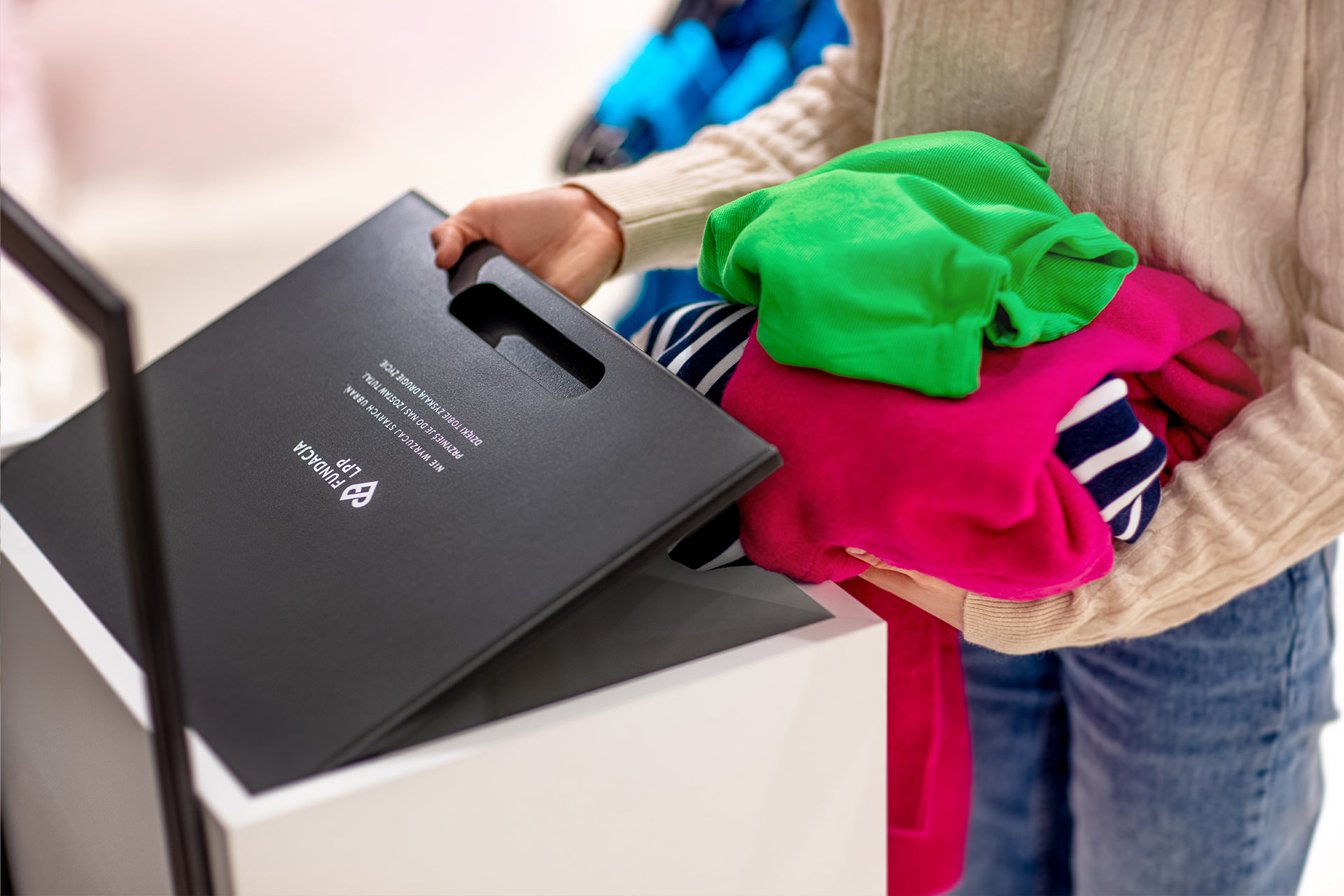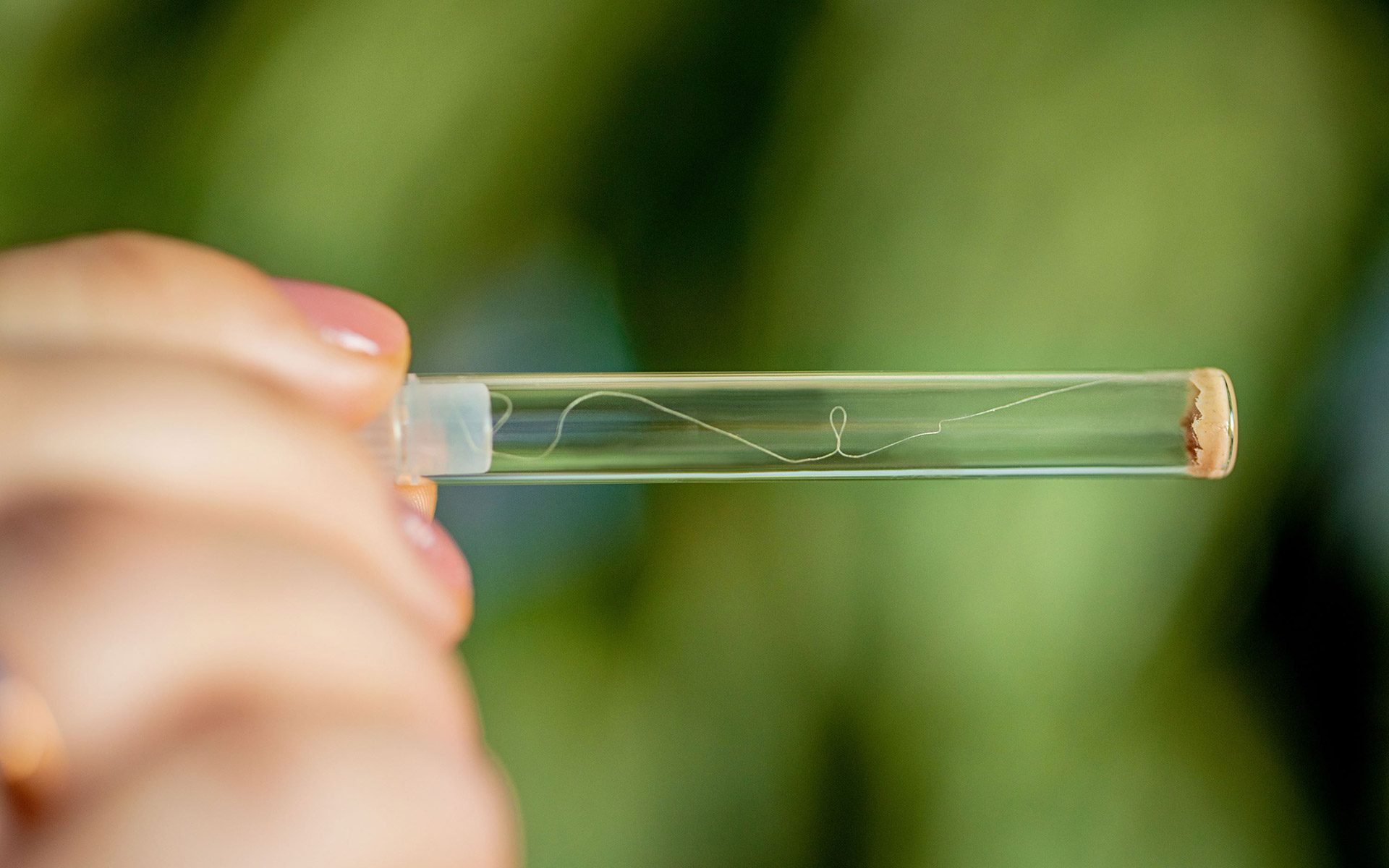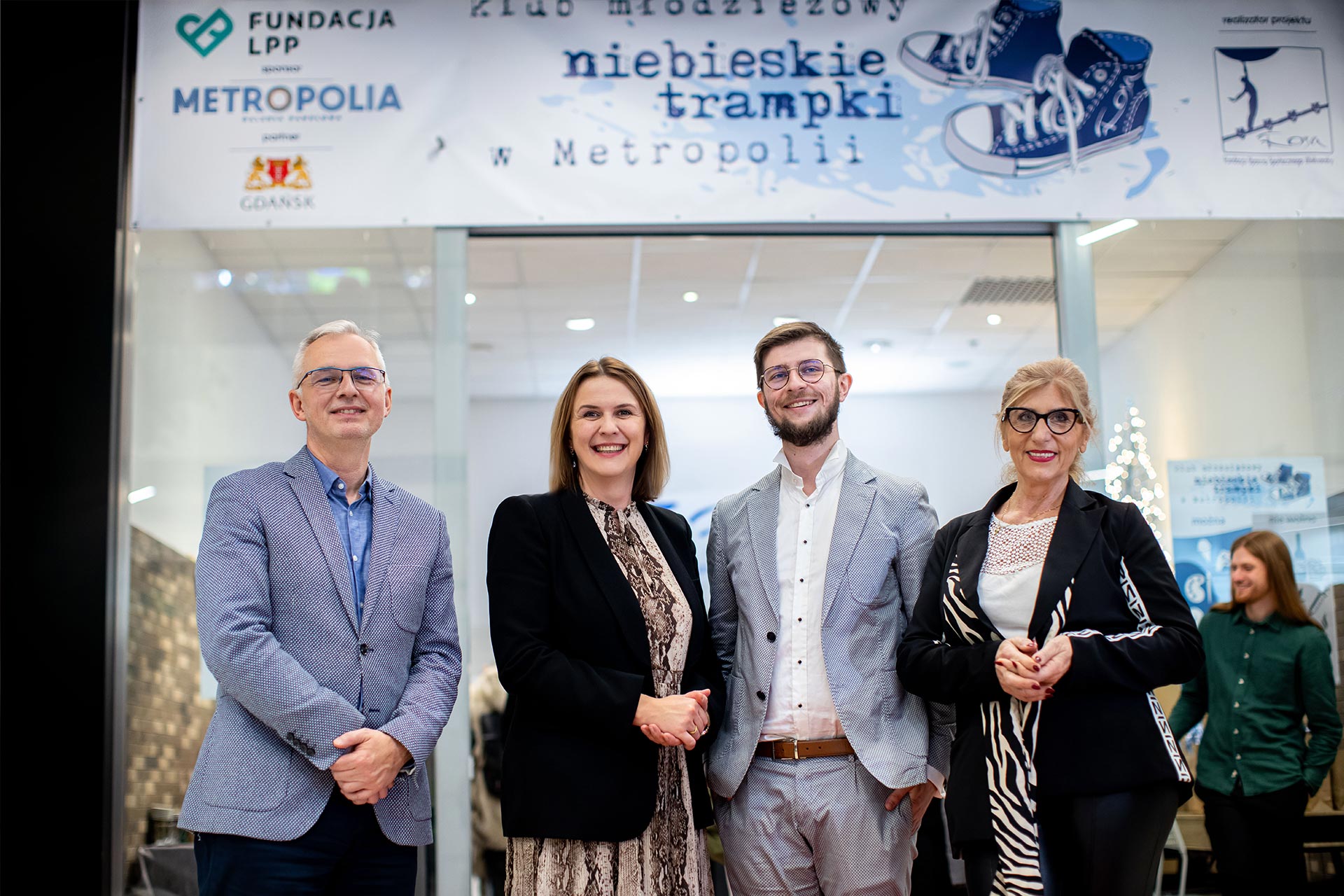Reducing the carbon footprint a key focus on LPP’s 2023 sustainability strategy activities

- LPP Group has reduced its Scope 1 and 2 emissions by 63.9% as a result of its consistent implementation of the Polish manufacturer’s decarbonisation targets, approved by the SBTi in July 2023.
- For the Polish clothing manufacturer, the past year has also been marked by further measures to implement the circular economy and resource efficiency principles.
- In cooperation with the Polish start-up, Use Waste, the company has successfully completed the first stage of a polyester material recycling project and developed a technology to recover full value yarn from textile waste.
- In the past year, the LPP Foundation donated nearly PLN 3 million to social equality and local community activities, including improving the mental wellbeing of children and adolescents, as well as health and environmental protection. It also granted financial aid to 67 organisations and donated more than 280,000 items of clothing to social causes.
- LPP’s Sustainability Report 2023, including a double materiality analysis, was the first step towards achieving compliance of the reporting process with the CSRD.
The clothing industry is undergoing a number of different regulatory changes at the EU level, supporting standardisation and the ability to clearly assess the effectiveness of ESG measures taken by business operators. One of the key legal solutions in this area is the double materiality reporting obligation introduced in line with European Reporting Standards guidelines. While the first reports reflecting this process will not be required under the regulation until next year, LPP has already performed a double materiality analysis when preparing its 2023 report.
– This year’s report is a reliable source of information on our sustainability projects. It is a confirmation, both for us and for our stakeholders, of our ability to transform our objectives into tangible outcomes. That is why we have found it important to take a double materiality view of our business as soon as 2023. By analysing our own business and the entire value chain related to the product life cycle, we have developed a list of relevant topics that are currently the focus of our attention. We are sure that this analysis will serve as a solid foundation for our strategic management of ESG topics in the long run and for decision-making in business to gain the trust of our customers and our entire environment – comments Przemysław Lutkiewicz, Vice President of the Management Board of LPP.
Decarbonisation
LPP’s efforts to reduce its environmental impact in 2023 were driven by projects supporting the transition to a low-carbon economy. A milestone came with the positive assessment by the SBTi (Science Based Targets Initiative) of the company’s decarbonisation targets. The endorsement of LPP’s targets by the international initiative supporting the private sector in its efforts to combat global warming has also defined the group’s long-term plans to reduce greenhouse gas emissions.
– Calculating our carbon footprint across all scopes in 2021 sparked a number of changes intended to gradually reduce emissions from our operations. Today, by assessing our targets in accordance with the latest climate science standards, we make sure that we build on a strong foundation. The reduction in Scope 1 and 2 emissions by nearly 64% in the same year that the targets were endorsed by the SBTi is the best confirmation of this. We are the first Polish clothing company to accept this challenge, but the effects of our actions show that we are heading in the right direction – says Dorota Jankowska-Tomków, Procurement and ESG Director at LPP.
In the most challenging Scope 3, by increasing the use of preferred raw materials with a lower carbon footprint, LPP has reduced emissions per unit of product purchased resulting from the purchase of goods and services by 6.12%. In Scopes 1 and 2, covering direct and indirect emissions from the use of our own vehicles and buildings, i.e. offices and warehouses, LPP has pledged to reduce emissions by 42% as of 2030 compared to the 2021 baseline. The way to achieve this is to reduce electricity and heat consumption, decarbonise the power grid, electrify the car fleet and, above all, switch to renewable energy sources, to name but a few. Where the company has no option to choose green energy, such as in its brand shops, it focuses on monitoring and reducing its consumption. Telemetry plays a key role here. Installed in all newly opened shops, the system makes it possible to adjust the lighting schedules in the shops and remotely control the working time of electronic devices. The use of telemetry in almost 75% of our shops in the period under review has already brought LPP a year-on-year saving in energy consumption of around 18%. At the same time, the company has announced that these systems will be installed across its entire sales network in 2024.
Partnerships for a circular economy
2023 was also a milestone year for LPP in terms of progress in its efforts to promote a circular economy. The circularity of clothing remains one of the key challenges, mainly due to the scale and cost of developing textile-to-textile recycling technology. It is also one of those areas in the ESG strategy that is particularly in need of multi-stakeholder collaboration and engagement.
One example of a partnership to reduce the use of primary resources is LPP’s collaboration with Use Waste, a Polish start-up, underway since 2022.

– There is a growing number of initiatives in the market to address the problem of textile waste. Each of these is utterly precious, which is why we continue to expand the range of circular clothing collections in our shops. Keep in mind, however, that any circular clothing will eventually become waste. In addition, given the mandatory segregated collection of textile waste due to start in 2025, developing a technology to turn this waste into raw material for new clothing is now the most urgent task, not only for the clothing industry. Only through close cooperation on many levels and the willingness to share the costs of the whole project will a real transformation towards a circular economy be possible. We hope that our successful first stage of research into the technology of converting used polyester textiles into new yarn will pave the way for its industrial-scale spread – adds Dorota Jankowska-Tomków.

The positive results of laboratory work on recycling polyester fabrics have driven LPP to continue exploring further methods of turning clothing into more clothing. Early in 2024, the company began research into recycling material blends, a popular solution used in the clothing industry. Its goal will be to develop a technology to selectively separate individual fractions from material blends, so that each fraction can be recycled as a resource for new yarn production.
Together for the mental health of children and adolescents
Alongside its efforts to reduce its environmental impact, this Polish clothing company seeks to help people in difficult life situations and at risk of social exclusion. In pursuing this mission, the LPP Foundation focuses on projects whose main beneficiaries are young people from the Pomorskie Voivodeship and the regions where the company’s other offices and logistics facilities are located. By engaging in partnerships and listening to the needs of social organisations, the LPP Foundation is able to implement projects that respond to current problems and challenges of local communities. One example of such an initiative is the financial support given by the LPP Foundation to the Youth Helpline since 2021 as part of the cooperation initiated by Reserved with the ITAKA Foundation. By joining forces with the city of Gdańsk, the FOSA Foundation and the Metropolia Gallery in Gdańsk, the “Niebieskie Trampki” club was opened in December 2023. The year-long funding from the LPP Foundation has made it possible to create a place that offers young people the necessary help in times of crisis, social inclusion opportunities and a space for creative leisure under the guidance of specialists. The club in the Metropolia Gallery is not only a place for socialising or developing interests. The new point on the map of Gdańsk supports young people in building coping mechanisms in crisis situations and provides them with comprehensive preventive and sociotherapeutic support.
– The LPP Foundation’s goal has always been to respond to the most pressing needs of the communities in our immediate surroundings. By working with community institutions, foundations and associations, we do much more than just broaden the scope of our activities. Each such partnership also gives us confidence that our support addresses real challenges. Our involvement in psychological support projects for adolescents comes as a natural response to one of today’s most pressing social problems. We believe that such projects give us the opportunity not only to raise the awareness of the challenges faced by young people today, but also to provide real support in developing coping skills in everyday life – says Patrycja Zbytniewska, Leader of Sustainable Reporting and Community Relations, President of the LPP Foundation.

In the past year, the LPP Foundation carried out a number of projects, including: “Fashion for a Better Start”, which has already become a fixture in the activities to support the wards of Gdańsk-based and, from 2023 onwards, also Kraków-based social organisations. Throughout 2023, the LPP Foundation allocated a total of nearly PLN 3 million for its own aid programmes, as well as programmes designed as part of partnerships or employee volunteering, providing financial support to 67 organisations and in-kind aid to 210 entities.
It would not have been possible to bring the Gdańsk-based company’s environmental and social responsibility projects to fruition without ambitious business plans. In 2023 alone, thanks to the consistently built recognition and development of the clothing brand sales network, the company completed investments worth PLN 1.1 million, at the same time transferring more than PLN 2 billion in revenue from its operations to the state budget.
______________________________________________________________________________
LPP is a Polish family-owned company, one of the most rapidly growing in the fashion industry in the Central European region. For the past 30 years, it has been successful in Poland and abroad, selling its collections in such prestigious capitals as London, Helsinki and Tel Aviv. LPP manages 5 fashion brands: Reserved, Cropp, House, Mohito and Sinsay, with the product ranges now available for sale in shops and online, in nearly 40 markets worldwide. The company has nearly 2,400 shops with a total area of more than 2 million m2, and every year distributes clothing and accessories to 3 continents. LPP also has an important role in creating jobs for nearly 43,000 people in offices and sales structures in Poland, Europe, Asia and Africa. The company is listed on the Warsaw Stock Exchange in the WIG20 index and belongs to the prestigious MSCI Poland Index.


